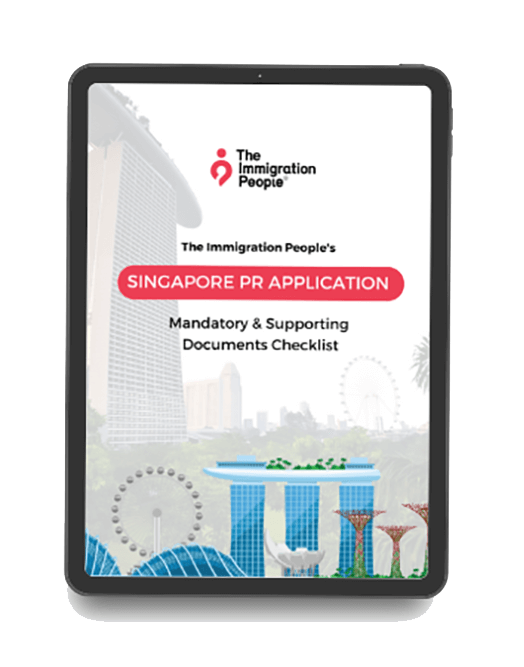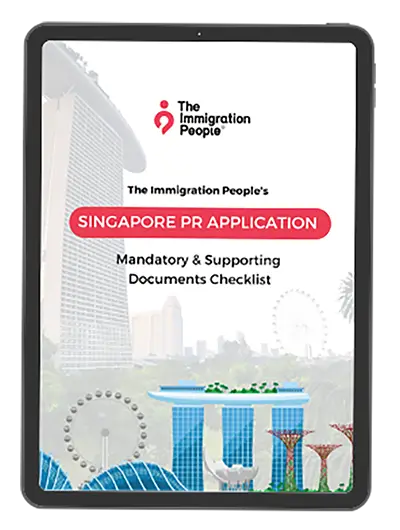- Reassess your PR application carefully to understand the possible reasons for its rejection.
- Improve the areas you lack before applying for Singapore PR application again.
- Appeal your PR rejection with an appeal letter – but only if your profile has improved.
- Wealthier foreigners can consider applying for PR under GIP.
- Seek professional advice from immigration specialists to help you strategise better.
- Work towards a higher work pass status to improve your profile.
Securing a Permanent Resident status in Singapore can be an intricate process, and rejection of your PR application can often feel like a significant setback.
But it doesn't mean all hope is lost - even if you have been rejected countless times.
It's essential to know that you can employ various options and strategies following a Singapore PR application rejection. From a reapplication attempt or choosing the appeal option, you should weigh your options and decide which route is best for you.
Remember, a PR application rejection does not define your future.
In this article, we will also look at some key pointers and how to increase your chances of success.
Understanding Your PR Rejection Letter

The first step after receiving a Singapore PR rejection letter is understanding why your initial application was unsuccessful.
The Immigration & Checkpoints Authority (ICA) typically would not provide reasons in your PR application rejection letter. However, the common reasons are as such:
1. PR Application Form and Supporting Documents
Rejections are often due to inaccuracies or insufficient details in your application documents.
Hence, it's crucial to re-examine these areas. Ensure all application details are accurate and corroborated by the appropriate supporting documents, like the cover letter.
These documents serve as the backbone of your application, providing evidence for your claims. They establish your identity, financial stability, educational background, work experience, family ties, etc.
For instance, if you are applying for Singapore PR under the PTS scheme, demonstrating your qualifications and achievements is vital.
Include your educational certificates and milestones you have achieved in your past or current employment. Show how you are an asset at work!
Therefore, all supporting documents must be current, correctly filled out, and appropriately certified.
2. Eligibility Criteria for Singapore PR Status
The ICA follows specific eligibility criteria to grant Singapore PR status, and different Singapore PR paths have different sets of criteria.

These may include factors like age, qualifications, financial capability, marriage and professional experience, and period of time residing in Singapore. If your PR application does not meet these criteria, your chance of success may be lower.
Re-evaluate your credentials against the required criteria.
The ICA receives thousands of suitable permanent residence applications in a year. What can you do more in terms of societal contributions and economic growth that can show your determination to be a Singapore permanent resident?
If there are areas where you fall short, you may need to work on improving those aspects before reapplying. We advise you to seek professional advice if you need to learn how to maximise your chances. Another thing to note: you can only apply for Singapore PR once more after the 6-months cooldown period.
Writing an Appeal Letter
If you believe your PR application was unjustly denied, and your situation has improved or changed since the application, you could consider appealing the decision with an appeal letter.
This letter should address the reasons for rejection in your PR rejection letter, providing additional evidence or arguments as needed.
However, be aware that preparing an appeal letter to overturn ICA's initial decision is a challenging task.
If you pursue this option, consider consulting with an immigration expert to ensure you submit a strong appeal.
Making Use of The Global Investor Programme (GIP)

For wealthier foreigners, the Global Investor Programme (GIP) might interest you.
The GIP is an alternative scheme the Singaporean government offers for foreign investors interested in starting a business or investing in Singapore.
If your initial PR application was unsuccessful, and you possess substantial business or investment experience, this could be an alternative path to Singapore PR status.
Under the GIP, successful applicants will be granted PR status. However, they must invest at least S$10 million in a new business entity or expand an existing business operation.
Eligibility requirements for the GIP are stringent and are best suited for high-net-worth individuals.
Professional Assistance for your PR Application
Immigration procedures can be complex, but experienced immigration specialists like The Immigration People can provide invaluable assistance. Such professionals can guide you on the best strategies after a PR rejection.
We can reassess your application and provide a realistic evaluation to help prepare an appeal letter or suggest other PR schemes you may be eligible for.
Our expertise can help you navigate the often-tricky immigration landscape and potentially avoid pitfalls that could lead to another PR application rejection.
Leveraging Employment and Educational Opportunities
Singapore offers a range of work passes that can be stepping stones towards achieving PR status. The Employment Pass, for instance, is for foreign professionals working in managerial, executive or specialized roles.
Similarly, the S Pass is for mid-level skilled staff.
Conclusion

Singapore PR application rejection may seem daunting, but it doesn't mean the end of your journey.
By understanding the reasons for your rejection, making improvements, considering alternative routes, and seeking professional help, you can improve your chances of achieving PR status.
Each challenge presents a new opportunity for learning and growth, and with the proper guidance and persistence, you can turn your setback into a step forward.
Frequently Asked Questions on What Are Your Options After Your PR Application was Rejected?
What is the rejection rate for PR application?
ICA does not release official data on the rejection rate of PR applications. However, based on anecdotal evidence, it is estimated that more than 60-70% of applications are rejected.
We recommend that you meet all the requirements before submitting your application for consideration.
For more specific information about your situation, we recommend you contact a professional immigration consultant for an initial profile analysis and get application tips to improve your profile strength.
When can I apply again after PR rejected?
Generally, you can apply for PR again after 6 months from the date of rejection.
It is advisable to understand how to improve your success chances. If you were to submit the same thing again, you can expect the same application outcome.
To increase the chances of success in your next application, you should improve on the areas you are lacking in, be it in terms of integration efforts or adding more professional certificates.
How long does PR appeal take?
The length of time for PR appeal processing depends on the nature and complexity of the case.
Generally, an appeal takes approximately 2-4 months from when it is submitted for a decision to be made.
It is important to note that the appeals process can be lengthy, and there are no guarantees that a successful outcome will be achieved.


